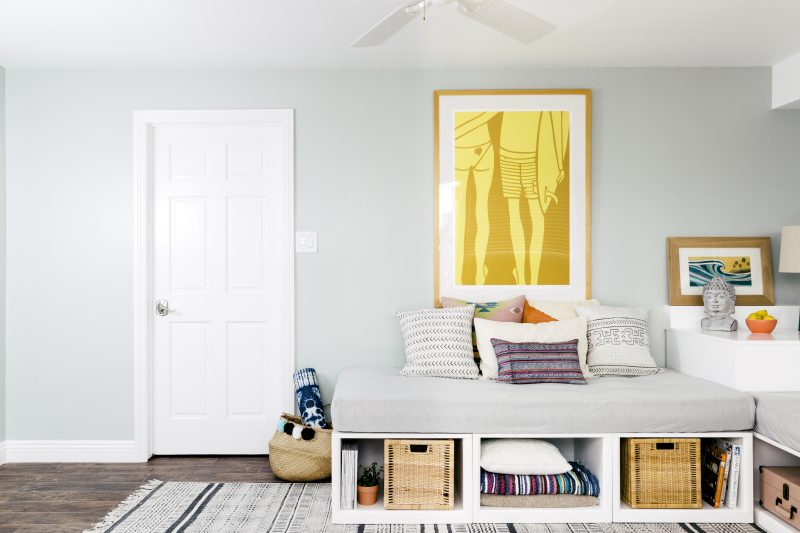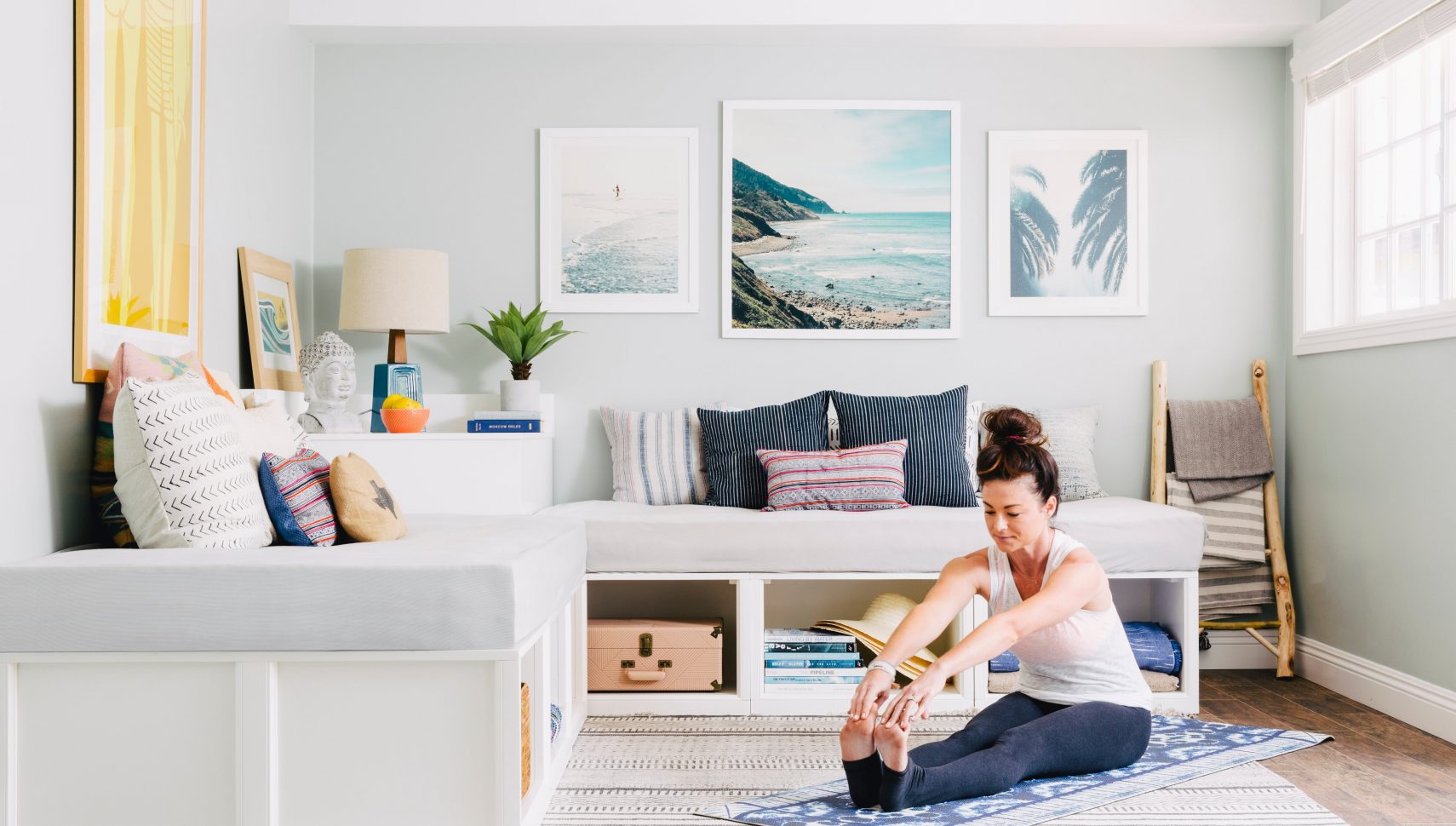Beautiful places boost our moods and help us de-stress — remember the last time you enjoyed a day reading at the beach or a quiet hike in the mountains? So it makes perfect sense that creating a beautiful atmosphere within your home can cultivate tranquility, ease, and well-being. What’s more, study after study supports the idea that interior design has a psychological impact on each and every one of us.
In this 2001 study from the American Psychological Association, for example, researchers found that a connection between nature and interiors, such as nature-inspired paint colors, restored mental clarity and helped heal the body. This 2017 APA study discovered that therapist offices with appealing interior design reaped psychological benefits for clients. Yet another APA study demonstrated that college students were happier and more productive in classrooms and dorms that incorporated better design.
And yet, for many people, interior design is seen as a bonus or extra rather than a necessity or priority. With the help of Havenly interior design experts Annie Mueller, Stacy Harwood, and Tracie Battle, we’re tackling the psychological importance of good design head-on.
“When you take the time to invest in your home, you’re investing in your well-being, too,” says Havenly senior designer Annie Mueller. “It’s another form of self-care.” Still, she says, that doesn’t mean you have to invest a ton of money all at once. “It’s a continued evolution of where you are in life: your home is a reflection of you, where you can relax and feel comfortable, and you can do that over time.”
Senior designer Stacy Harwood echoes Mueller’s assertion: “Good design should make your life easier and solve everyday problems.”
For both designers, one of the best ways to enhance your psychological well-being is also one of the most economical: declutter!
“If an item isn’t functional, beautiful or sentimental, toss it,” Harwood says. “If you aren’t certain of an item’s future purpose, hire a designer early in the process to help you sort these things out.”
Once you cut through the clutter, Mueller suggests rethinking the items you already own — something she did herself just recently. “I piled all of our art and accessories onto our dining room table. Then, I started putting pieces in different places. I created completely different spaces than what I started with, all without buying anything new.”
Other affordable design tips from the designers include painting a room in need of a refresh or incorporating mirrors and reflective surfaces to amplify natural light (a 2002 study in the journal Ergonomics observed that natural light and color contributed to a more positive mood).
Senior designer Tracie Battle reminds her clients that the design process doesn’t have to happen in an instant. “It often takes people months, sometimes more than a year to finish a space, regardless of their budget,” she says, noting that curated purchases over time help make your home feel more authentic. “Remember, you don’t necessarily want it to look like it came straight out of a catalog or straight from Pinterest. You want a room to feel true to who you are — a balanced blend of different things.”
Battle suggests setting aside a certain amount of money each month for interior projects to help you balance your budget without “letting your home fall to the wayside.” Harwood implores people to “make your furniture work harder” through smart, multifunctional purchases: “You don’t need three pieces of furniture to hold your TV, hide a printer and store all of your books,” she says. “One well-designed piece can do all of those things, so save up and invest in pieces that make sense and leave some breathing room to produce a feeling of calm.”

With Havenly, you’ve got design experts like Harwood, Battle, Mueller, and so many more at your fingertips. “An interior designer can help you figure out a design plan that you’ll be able to roll out over time with all the costs associated with each need and want so you can plan accordingly,” Harwood says. “Floorplanning, 3D renderings, budget guidance, and a shopping list for each of the rooms you’re hoping to address will help keep you organized and eliminate unnecessary stress,” she says.
Ready to boost your sense of well-being at home? Get started with our style quiz.

